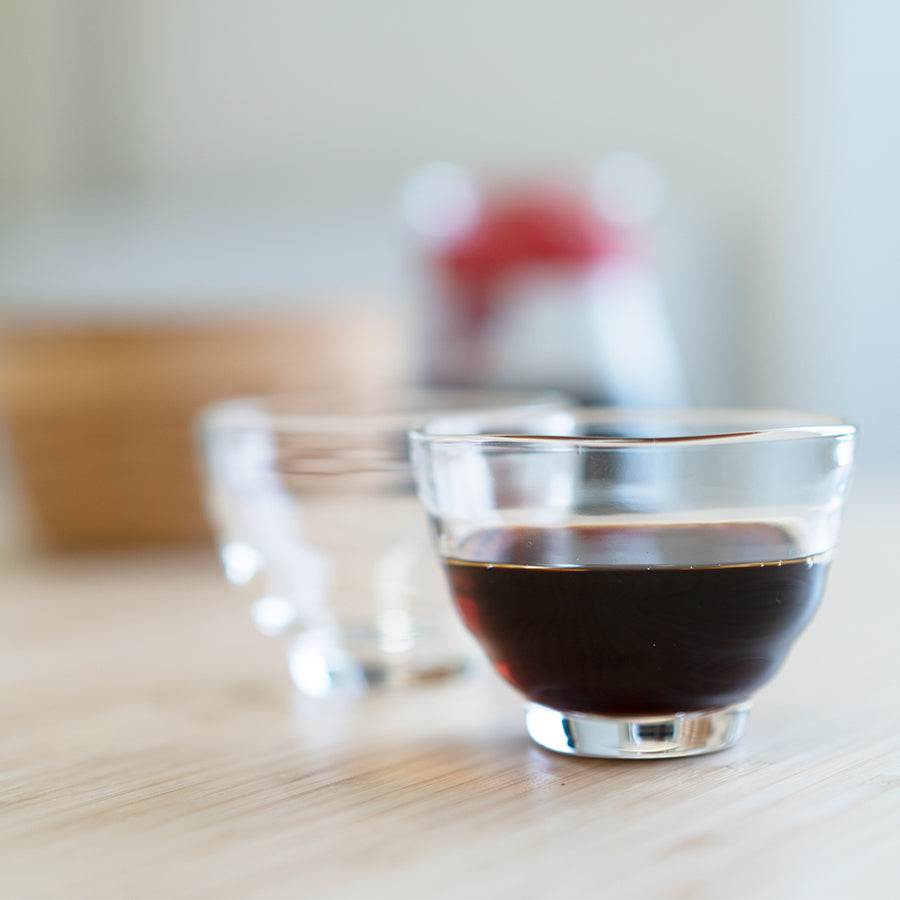A perfect filter coffee requires more than just good beans. The right grind, the ideal water temperature, and a balanced brewing time are crucial. A grind that's too fine leads to bitterness, while a grind that's too coarse leads to a watery taste. The water quality also influences the aroma. With the right tips and tricks, you'll always have the perfect cup of coffee.
The right grind
Even small mistakes can significantly affect the taste of your filter coffee. Learn which common mistakes you should avoid to enjoy a perfect cup of coffee every time. A grind that's too fine leads to over-extraction, which makes the coffee bitter. The finer particles have a larger surface area, which quickly penetrates the water and extracts too many bitter compounds and unwanted flavors. This can result in the coffee tasting unpleasantly strong and bitter.
A grind that's too coarse, on the other hand, leads to under-extraction, where not enough aromas and oils are extracted from the coffee beans. The result is a weak, watery coffee with little flavor or depth. The larger particles allow the water to flow through too quickly, extracting only the easily soluble, acidic components.
For optimal flavor, use a medium-coarse grind, similar to coarse sea salt. This grind provides the right balance between extraction speed and surface area, allowing the flavors to be extracted evenly and completely.
Water quality
The quality of the water is also crucial for the taste of the coffee. Tap water can contain contaminants such as chlorine and other minerals that can negatively affect the taste of the coffee. Chlorine, for example, can create a chemical taste that overpowers the coffee's delicate aromas.
Using filtered water removes these impurities, resulting in a cleaner, clearer taste. Filters not only remove chlorine, but also other undesirable substances that can impair the taste. This allows the coffee's natural flavors to fully develop, ensuring a pleasant and authentic taste experience.
By paying attention to the correct grind size and water quality, you can ensure that your coffee always tastes optimal and offers the best possible variety of flavors.
Ideal water temperature
The ideal water temperature for brewing coffee is between 90 and 96 degrees Celsius. Water that's too hot (over 96 degrees Celsius) leads to over-extraction, which makes the coffee bitter. Water that's too cold (below 90 degrees Celsius), on the other hand, leads to under-extraction, which makes the coffee taste flat and weak. A kettle with temperature control is especially helpful for precisely maintaining the optimal temperature and thus ensuring the best possible extraction.
The right ratio of coffee to water
A typical ratio for brewing filter coffee is 1:15 to 1:17, meaning 1 gram of coffee is used for 15 to 17 grams of water. This ratio ensures a balanced extraction and a harmonious flavor. Too little coffee to water results in a weak, watery taste, while too much coffee creates an overly intense and bitter flavor. To achieve the perfect ratio, it's important to accurately weigh the coffee and water. A kitchen scale can help you measure precise amounts and achieve consistent results every time.
By carefully controlling the water temperature and the coffee-to-water ratio, you can ensure that your filter coffee tastes its best every time and that the desired flavors are brought out.
Preparing the filter
Don't forget to rinse the paper filter with hot water before use. This has two key benefits:
- Remove paper taste: Rinsing removes any paper taste that could impair the coffee.
- Preheating the pot: The hot water preheats the coffee pot, which helps keep the brewing temperature constant during the brewing process.
Cleaning the utensils
Clean your coffee pot, filter holder, and other utensils regularly. Deposits of old coffee oil and coffee grounds can impair the taste of fresh coffee and lead to a bitter cup. Regular cleaning ensures that old residues don't affect the flavor.
Monitor brewing time
The total brewing time should be approximately 2-3 minutes. A shorter brewing time will result in under-extraction, where not enough flavors are released, resulting in a weak taste. A longer brewing time, on the other hand, will result in over-extraction, which will make the coffee bitter. Use a stopwatch or timer to accurately monitor the brewing time and ensure consistent extraction.
Why is coffee too bitter or too sour?
Bitter coffee
- Over-extraction: If the coffee is in contact with water for too long or the water is too hot, too many bitter substances are extracted from the beans.
- Grind too fine: A grind that is too fine leads to over-extraction.
- Old beans: Older beans that have been ground or roasted for a long time can taste bitter.
Sour coffee
- Under-extraction: If the coffee is extracted for too short a time or the water is too cold, not enough aromas are released.
- Grind too coarse: A grind that is too coarse can lead to under-extraction.
- Roasted too light: Lightly roasted beans often have a more pronounced acidity.
- Wrong type of coffee: Certain types of coffee, especially those with high acidity, can produce an unpleasantly sour taste in the coffee.




